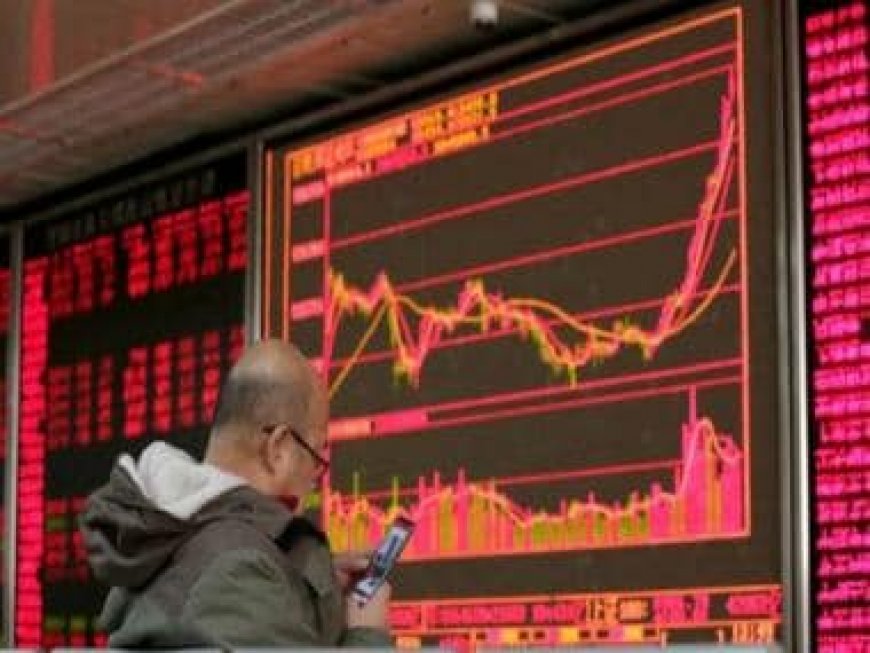After ‘zero-Covid’ Chinese capital takes flight to India, Japan, South Korea
After ‘zero-Covid’ Chinese capital takes flight to India, Japan, South Korea

A lower than expected economic recovery after sudden lifting of ‘zero-Covid’ policy has soured the sentiments of investors in China, prompting them to look for alternative options in stock markets of India, Japan and South Korea.
Disappointment from China’s reopening have pushed investors to lookout for alternative options for their money and they are now seeing possibilities in markets of their near neighbours.
“Investor sentiment on China has weakened further, and in our view is around rock-bottom levels we’ve only seen a few times over the past decade,” a report by CNBC quoted Goldman Sachs Chief Asia-Pacific Economist Andrew Tilton as saying in a research note.
Focus returns towards India
Tilton further said amid China weakness, “investors have looked elsewhere in the region for opportunities.”
The economist further said Japan “is in the limelight” while India has “also returned to focus in recent months.”
What’s attracting Chinese investors to India?
Tilton said, “Clients increasingly ask about India’s potential to benefit from greater investment amid supply chain reconfiguration.”
Goldman Sachs said it is “generally positive in the medium term” as it cited that India’s continued monetary policies, credit conditions, and prospects for attracting foreign direct investment.
Why Japanese stocks are luring Chinese investors?
As per Morgan Stanley’s global mid-year outlook report, Japanese stocks are predicted to outperform their global peers.
“Japan is our most preferred region, with improving ROE [Return-on-Equity] and a superior EPS [earnings per share] outlook,” Chief Investment Officer Mike Wilson said.
Foreign investors have been driving the Japanese stocks, pushing the Nikkei to the highest levels seen since 1990.
The Japan’s finance minister in its latest data highlighted that overseas investors continued to build on their Japanese equity positions as domestic investors remain the net buyers of foreign bonds.
According to a report by Reuters, in the week ending June 2, foreign investors bought a net 342.18 billion Japanese yen ($2.45 billion) of stocks, totalling around 6.65 trillion yen of net purchases of Japanese shares this year.
As per the report, foreign investors had sold a net 1.73 trillion yen approximately during the same period last year.
The outlook report by Morgan Stanley also mentioned that “Japan [is] looking even more attractive, while we hold a preference for EM [emerging markets] versus the US and EU.”
South Korea’s tech stock lures Chinese investors
A report by UBS Global Wealth Management said that the low price-to-book ration of South Korean technology stocks are making it “an attractive alternative to more expensive tech segments.”
Price-to-book ratio is an important metric used by investors to gauge the value of a stock.
For the unversed, Korean technology stocks make up roughly half of the Kospi 200 index and therefore, are “most preferred” status on the sector and its market.
Goldman Sachs too is confident in the South Korean market and expects more overseas investment ahead.
“We are relatively bullish on Korea both because we are less concerned about broader domestic spillovers from housing sector weakness and more optimistic about foreign portfolio inflows,” Goldman’s Tilton said.
As per data from Korea Financial Investment Association, the country’s money market fund (MMF) reported a record high in May end. A report by CNBC said that the total MMF assets under management stood at 172.7 trillion South Korean won ($134 billion), or a 22 per cent rise since the end of September last year.
Change in stock markets
As per report by CNBC, India’s Nifty 50 index rallied nearly 7 per cent so far this quarter and pared all of its losses from its March low.
South Korea’s Kospi index rose 18 per cent year-to-date, while the Nikkei 225 is in bull market territory, up by over 23 per cent year-to-date.
On the contrary, the CSI 300 index, which measures the largest companies listed in Shanghai and Shenzhen dropped 5.29 per cent quarter-to-date. It erased all gains registered earlier in the year, when stocks rallied on reopening momentum.
The Hang Seng index also touched bear market territory in May and is down nearly 2 per cent, Refinitiv data showed.
Read all the Latest News, Trending News, Cricket News, Bollywood News,
India News and Entertainment News here. Follow us on Facebook, Twitter and Instagram.
What's Your Reaction?



























































